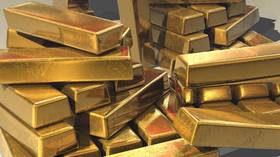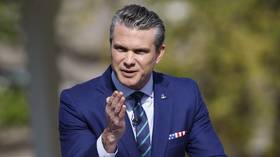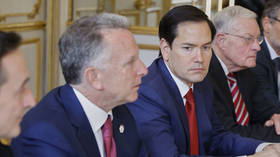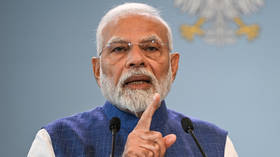Russian debt default no longer ‘improbable’ – IMF
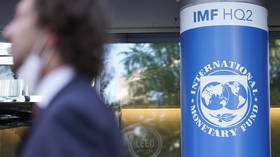
The International Monetary Fund has warned a Russian debt default is no longer an “improbable event,” as while Moscow has plenty of money, it can no longer use it due to unprecedented sanctions imposed by the US and EU since last month in the runup to war in Ukraine. The sanctions will also make it difficult to convert its special drawing rights into currency, IMF managing director Kristalina Georgieva told Bloomberg on Thursday.
The IMF’s cautious move toward preparing for default follows moves by bond raters earlier this week to downgrade Russia’s debt, with Fitch Ratings in particular declaring that a default is “imminent” due to the sanctions regime. The agency has interpreted a spike in trading credit-default swaps, which are used to insure against non-payment and figured prominently in the 2008 financial crisis, to mean that Russia has a 71% chance of defaulting within a year and an 81% chance within five years.
However, holders of Russian debt are unsure whether they could settle such credit-default swaps if the country repays its foreign debt in rubles. While the local currency has lost significant value due to the unprecedented financial constraints imposed upon it by the West, President Vladimir Putin signed a law over the weekend permitting the government and Russian companies to settle their debts in rubles.
While Russia has considerable gold and foreign exchange reserves, much of that wealth is trapped overseas in countries that have suddenly become deeply hostile – or at least more overtly hostile than they had been previously. The US, for example, is seeking to lock down $132 billion in Russian gold after already imposing sanctions on a significant chunk of the country’s forex reserves.
However, the IMF has not sought to try to remove Russia from its ranks, Georgieva told Bloomberg, noting that the country would have to violate its economic obligations based on the IMF’s articles of agreement for such an eventuality to happen, and Moscow is currently meeting its obligations.
It isn’t just Russia whose fiscal future the IMF has had to reconsider due to the war in Ukraine. After already cutting the global growth forecast in January due to the latest Covid-19 variant, the global financial body has warned it expects to have to further reduce its growth estimate for the year. While Russia is moving into a “deep recession,” Georgieva told AFP, commodity prices and inflation are surging in many other countries.
